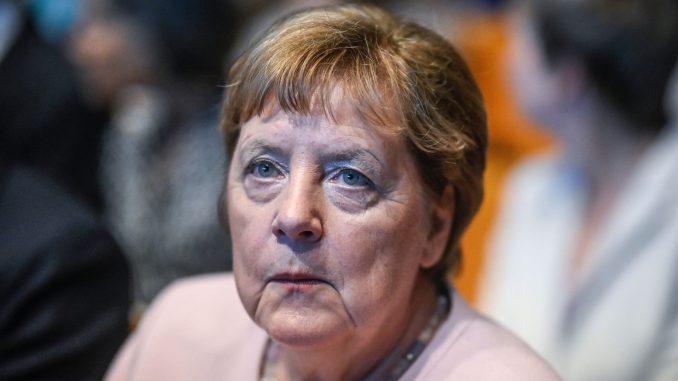
A July 2022 International Monetary Fund working paper found that in Europe, within the prior year, “oil prices had doubled, coal prices tripled, and natural gas prices increased more than fivefold.”
Further, about half of all inflation could be linked to this increase in energy prices. And perhaps most importantly, the study noted: “Higher energy prices tend to be regressive: They typically hurt poorer households more than richer ones.”
Much could be said about why this energy calamity has occurred. The Russian invasion of Ukraine is undoubtedly the main component. But we should not forget — as politicians in Europe are fond of doing, perhaps for political expediency — that the invasion would not have had such a profoundly damaging effect had Europe, and Germany in particular, heeded the years-long warnings not to make their economies all too dependent on Russian President Vladimir Putin.
Those warnings were ignored, especially by then-German Chancellor Angela Merkel.
What’s perhaps most remarkable, however, is that neither the German government, nor the European Union has changed its tune since toward a more sensible energy policy.
The sensible thing would have been, at the very least, to leave the nuclear plants open, or even better, to expand nuclear energy.
Energy dependence would have been diminished had such a course of action been taken. Alas, with the Green Party being part of the German government, nuclear power is a boogeyman that needs to be destroyed by any means necessary — even if “the science” tells them that it could be a great boon for the energy transition that Germany has been so keen to pursue.
Thus, this spring, Germany shut down its remaining nuclear plants in the middle of an economic and energy crisis and soaring inflation.
The nuclear phaseout, in conjunction with soaring energy prices that hit poor households in particular, is just the tip of the iceberg of a major problem of environmental policy today around the world; namely, that to protect the environment, to save the planet, and to transition to a cleaner energy future, average people and the economy overall have to suffer. (And they had better stop complaining!)
Most of European environmental policy has followed this scheme over the past decades: To help the environment, the government determines an environmental problem and then does everything it can to eliminate it by limiting its supposed economic or industrial source.
Thus, the approach is largely regulatory and prohibitive.
It follows the precautionary principle that tries to eliminate any risks, but also eliminates any possibilities for innovation. That’s the case also when it comes to nuclear skepticism, in which massive opportunities for a cleaner environmental future are eliminated due to irrational fears of some activists — despite the support for nuclear among the general population.
“Verbotskultur,” as the Germans call it — “prohibition culture” — has been the name of the environmental game in Europe.
This need not be the case, however. In fact, by eliminating any opportunities for entrepreneurship and innovation, governments are eliminating the most promising ways of solving what they see as a climate crisis.
As such, a rethinking of both environmental and energy policy is needed.
It would need to be a path in which government takes a step back and expands freedom for the participants of the market economy to do good. It would be an approach that empowers those environmental entrepreneurs by leaving room for them to improve the world.
That’s the proven way of free enterprise.
This isn’t mere theory. It has been reality for decades, and we can see it not only in individual cases of market environmentalist success stories, but economy-wide.
If one compares The Heritage Foundation’s Index of Economic Freedom with the Environmental Performance Index, one thing becomes abundantly clear: The more economic freedom there is, the cleaner an economy is.
The “science” is clear: Economic freedom and environmental quality go hand in hand. Thus, we can also say that economic growth (which is the result of economic freedom) goes hand in hand with a green future.
Three years ago, Christopher Barnard of the American Conservation Coalition and I presented more proof on this very point in our book “Green Market Revolution.” But unfortunately, current events in Europe prove that much more needs to happen to move environmental policymakers and activists away from the false dichotomy of economy versus the environment.
The false choice between growth and clean air is a dangerous delusion that we need to overcome as we work toward a future that is both pro-growth and pro-planet.
The Daily Signal publishes a variety of perspectives. Nothing written here is to be construed as representing the views of The Heritage Foundation.
Have an opinion about this article? To sound off, please email letters@DailySignal.com and we’ll consider publishing your edited remarks in our regular “We Hear You” feature. Remember to include the url or headline of the article plus your name and town and/or state.

